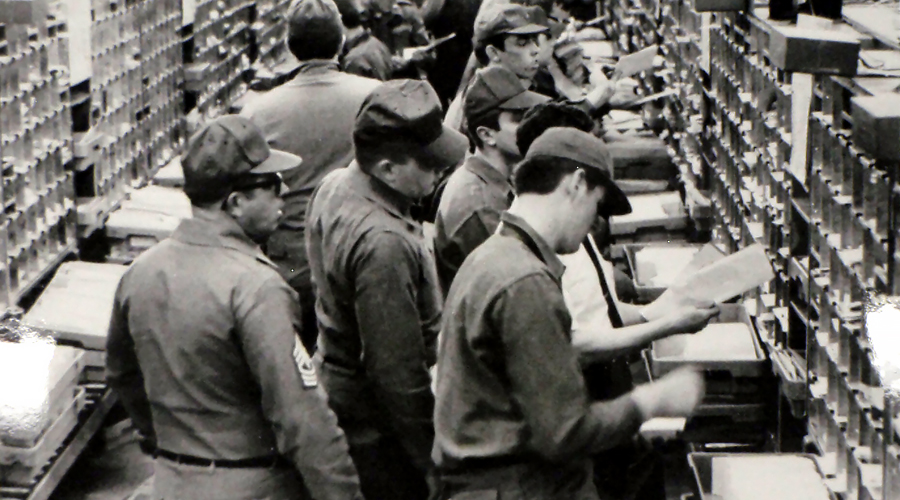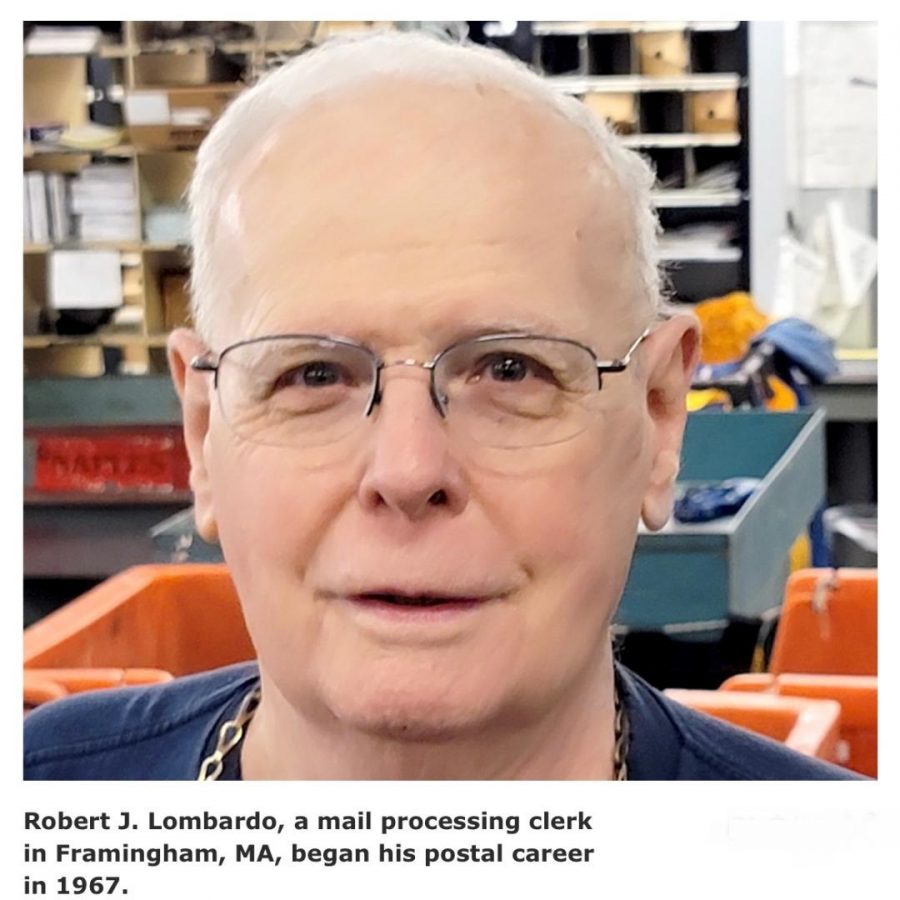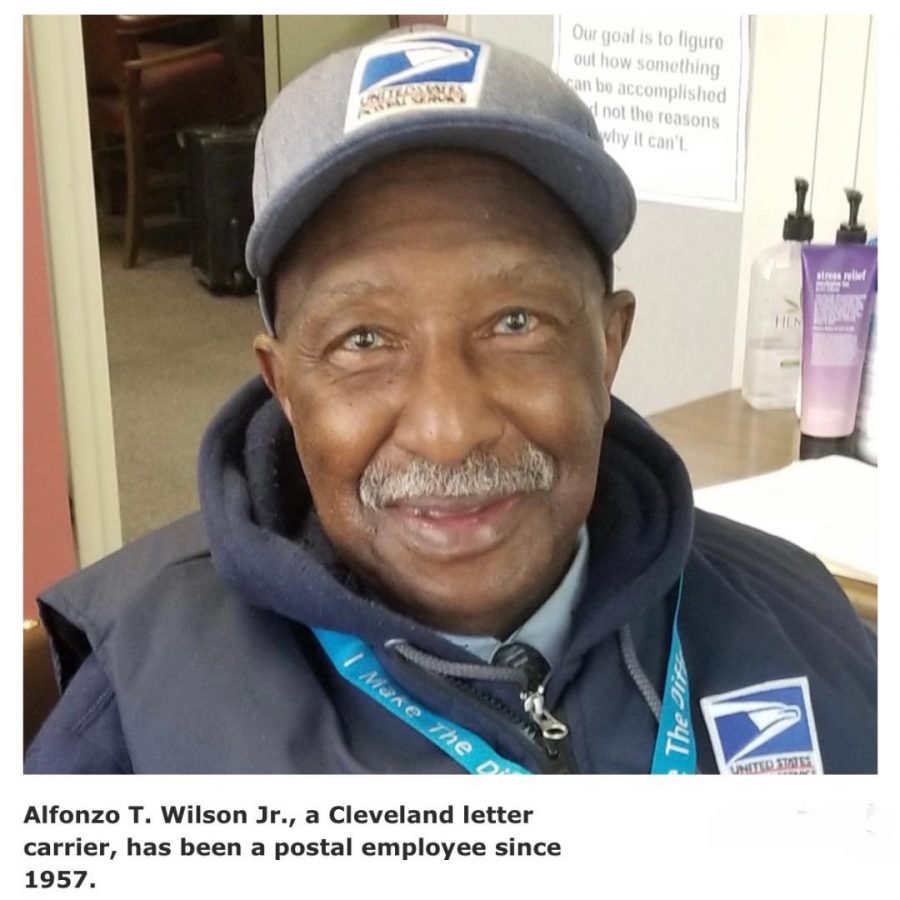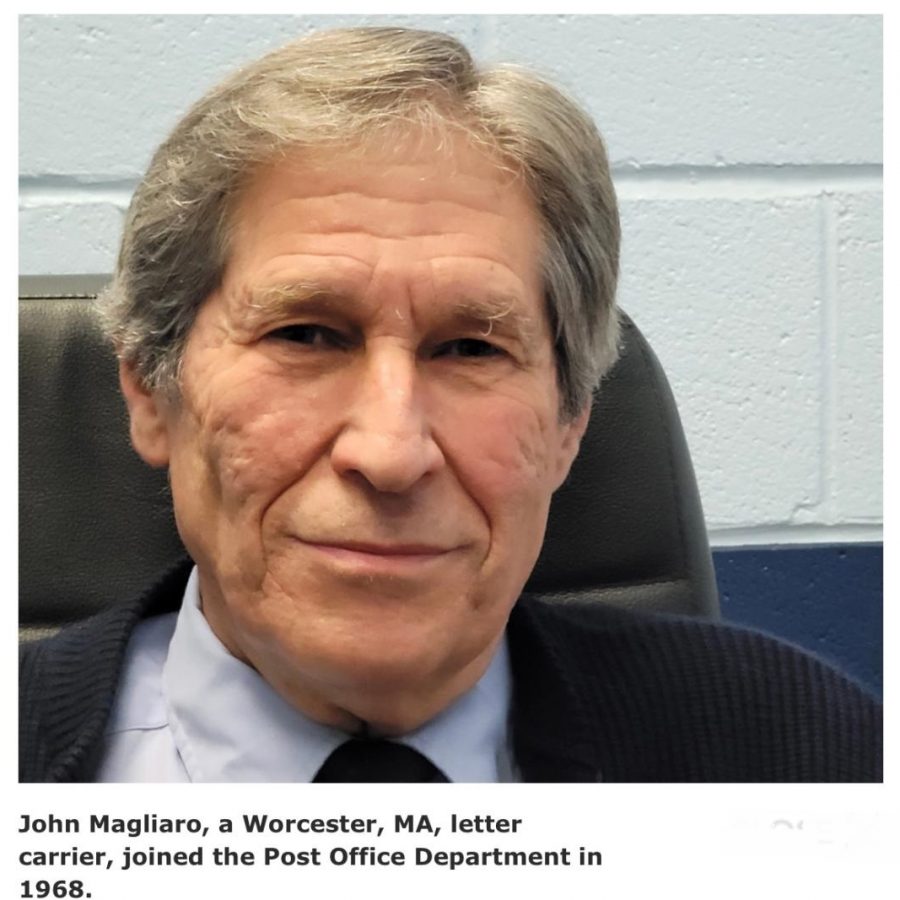
National Guardsmen sort mail in New York City in 1970 after letter carriers walked off the job to protest pay and working conditions. The main outcome of the strike was the Postal Reorganization Act of 1970, the law that transformed the Post Office Department into the Postal Service.
Robert J. Lombardo’s first day back at work as a clerk for the Post Office Department in Framingham, MA, coincided with a national strike that would lead to a significant change for the organization.
“When I came back from the service, my first day back I think was March 15, [1970], and I’m here on a Sunday. … And all of a sudden, all eight clerks that were here … they all got up and they left. And the supervisor … came up to me said, ‘You might as well go with them.’ I had no idea what was going on,” he said.
Lombardo, who still works for USPS in Framingham, is one of 25 employees who participated in the USPS 50th Anniversary Oral History Project, which the organization recently conducted to mark its transition from the Post Office Department to an independent federal agency on July 1, 1971.
Lombardo had been hired by the Post Office Department in 1967 before being drafted into the Army in 1968.
“I’d been gone for two years. And [we] went down to the Columbus Hall in Framingham and they were having a meeting with the NALC [National Association of Letter Carriers] about the strike, you know, the proposed strike. Would the two unions cooperate? Which they did. There was a one-day strike here, but I had no idea. … So, they had that meeting, and they had the one-day strike, and then we came back to work.”
That walkout began in New York City in March 1970 and spread across the United States. Though it lasted just one day in Lombardo’s office, it ran for eight days at some Post Offices. The proximate causes of the strike were pay and working condition issues.
The strike ended after President Richard Nixon declared a national emergency and ordered federal troops to help sort mail in New York City.
Though the strike was illegal, no Post Office Department employees were fired. And the termination of the strike led to talks between the federal government and various postal worker unions.
The main outcome of the strike was the Postal Reorganization Act of 1970, passed by Congress over that summer and signed into law by Nixon on Aug. 12, 1970.
The legislation, when it took full effect the following summer, transformed the Post Office Department into an independent agency of the federal government, the U.S. Postal Service.
Employees of the new USPS received the right to negotiate collectively on wages, benefits and working conditions.
Before Lombardo was hired in 1967, he took what was then called the civil service examination, along with his brother, at their father’s behest.
“When I started with the Post Office … as a part-time flexible, I was getting $2.64 an hour. And when you made regular, you took a pay cut — you went from $2.64 down to $2.58. Because you got paid that extra … because you’d have to work on holidays and things like that. I had no problems with the pay. You know … back in 1968, I thought it was great,” he said.
The wages Post Office Department employees earned might have been “good money” for single people without families, but others who participated in the oral history project remember the pay as lacking for those who lived in cities with higher costs of living and for those who were supporting a family.
Alfonzo T. Wilson joined the Post Office Department in 1957 and began delivering mail in Cleveland in 1958.
“The money was … very meager. Almost everyone in the Post Office at that time had a second job, especially if they had any children, because you couldn’t make it. In some cities where the cost of living was high, a mailman could get welfare and his salary. Because we just didn’t make any money,” Wilson recalled.
“In 1970, we went on strike. And everyone knew … you could lose your job, because we had a no-strike clause. But we felt like something had to be done. It was just, we just weren’t making a living,” he said.
After the Postal Reorganization Act became law, postal unions were able to negotiate better pay and working conditions for employees.
“We went on strike and this is what came of it,” said John Magliaro, who was hired in 1968 as a letter carrier in Worcester, MA. “Everybody was happy, though, because we started getting decent money, and the union had more strength.”
USPS 50th Anniversary Oral History Project Highlights
Source: USPS



